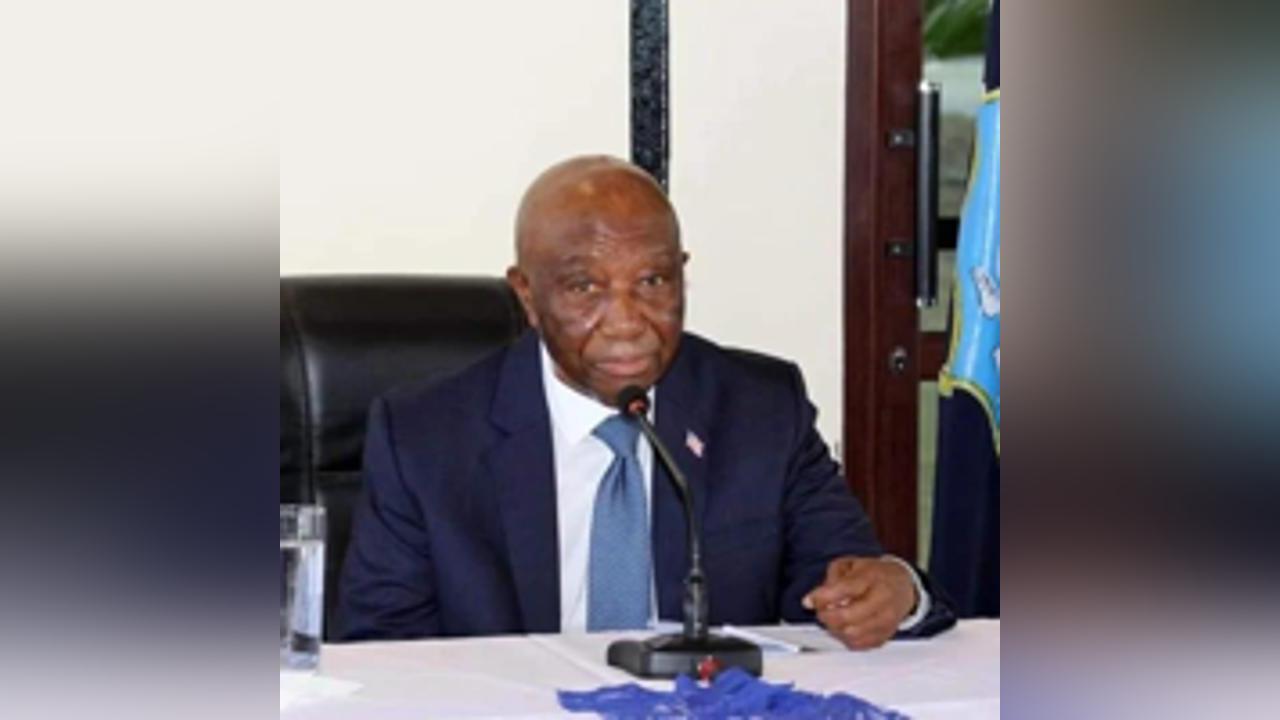Africa-Press – Liberia. In a major reaffirmation of national infrastructure policy, President Joseph Nyuma Boakai has decisively reinforced that Liberia will transition to a multi-user rail system with an Independent Operator when ArcelorMittal Liberia’s (AML) Mineral Development Agreement (MDA) expires in 2030. The President’s firm directive came during a high-level meeting of the Inter-Ministerial Concessions Committee (IMCC) on Tuesday, May 6, which he personally chaired at the Executive Mansion.
According to multiple sources familiar with the discussions, President Boakai made clear that Executive Order No. 136, which establishes Liberia’s policy of multi-user access to strategic railway infrastructure, will be aligned with all new concession agreements, including any amendment to existing ones. He emphasized that the Executive Order is not negotiable and must be fully respected by all government agencies and concessionaires operating in the country.
The President’s intervention follows recent controversy surrounding unauthorized letters sent by National Investment Commission (NIC) Chairman Jeff B. Blibo to ArcelorMittal Liberia and Ivanhoe Atlantic. In those letters, Blibo had unilaterally suggested that AML’s control over the Yekepa-to-Buchanan railway would be extended for another 25 years — a position directly at odds with the multi-user policy articulated by the Boakai administration.
Blibo’s communications triggered an uproar both within the Executive Branch and among Liberia’s international partners, prompting urgent clarification. Senior cabinet ministers, including the Ministers of Mines and Energy, Finance, and Justice, later confirmed they had no knowledge of, nor consented to, the letters Blibo sent under the guise of IMCC authority.
During Tuesday’s IMCC meeting, President Boakai reportedly instructed Blibo, in the presence of other cabinet ministers, to immediately retract his letters to the two companies. The President further directed that the National Rail Authority, established under Executive Order 136, must proceed to open the selection of an Independent Rail Operator to an international tendering process in accordance with the Public Procurement and Concessions Act (PPCA).
Sources at the Executive Mansion told the Daily Observer that Boakai was unequivocal: the future of Liberia’s railway assets must be grounded in a fair, transparent, and competitive environment that maximizes national revenue, spurs investment, and ensures infrastructure access to multiple users — domestic and foreign alike.
The Yekepa-to-Buchanan railway is one of Liberia’s most strategic economic assets. Originally constructed in the 1950s by the Liberian-American-Swedish Mining Company (LAMCO) to export iron ore from Nimba County to the Atlantic coast, the railway fell into disrepair during Liberia’s civil wars. In 2005, the transitional government under Gyude Bryant granted ArcelorMittal Liberia exclusive access to rehabilitate and operate the line under the terms of the first post-war Mineral Development Agreement.
Although AML resumed ore shipments and invested heavily in mining operations, critics have increasingly voiced frustration over the monopolistic arrangement that effectively locked out other mining investors from using the rail. With a capacity designed for at least 22 million tons per year, usage under AML’s sole control has reportedly averaged far below capacity, depriving Liberia of potential revenue and economic diversification opportunities.
Executive Order 136, signed by President Boakai in October 2024, seeks to remedy this historical imbalance. It mandates open access to rail infrastructure and the creation of a regulatory framework under the newly constituted National Rail Authority. The goal is to ensure that all eligible mining companies, including emerging players like Ivanhoe Atlantic, can access the rail under fair and transparent terms, paying haulage fees that accrue directly to the government.
The transition to a multi-user, independently operated rail system is seen as critical to the future development of Liberia’s mining sector and broader economy. It also positions Liberia to benefit from growing global demand for critical minerals, especially given the massive iron ore deposits in the Nimba region, estimated at more than 11 billion tons.
As part of Tuesday’s decisions, President Boakai has reportedly ordered immediate consultations with international stakeholders to ensure the upcoming international tendering process for the Independent Rail Operator meets global best practices. Observers say the move will send a strong signal to investors that Liberia is serious about unlocking its full economic potential while upholding the rule of law and contractual fairness.
While official statements from the Executive Mansion are still awaited, Tuesday’s IMCC meeting marks a pivotal moment in Liberia’s efforts to modernize its infrastructure governance and attract new investment to revitalize the mining sector.
For More News And Analysis About Liberia Follow Africa-Press






